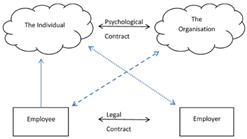Consumer decision-making processes in digital environments—A psychological perspective
Abstract
This conceptual paper examines the influence of psychological principles on consumer decision-making within digital shopping environments, integrating psychological theories with empirical observations to understand how cognitive, emotional, and social factors shape consumer behaviors online. By reviewing existing literature and applying a constructivist epistemology and relativist ontology, the study develops a conceptual framework highlighting the impact of digital interface design, information availability, and personalized marketing on consumer choices. The paper analyzes various examples and identifies vital psychological triggers and decision-making barriers, offering strategic insights for enhancing digital marketing practices. This research contributes to academic and practical understandings of digital consumer behavior, proposing that a more profound integration of psychological insights can lead to more effective and ethically grounded marketing strategies in the digital era.
References
Ajzen, I. (1991). The theory of planned behavior. Organizational Behavior and Human Decision Processes, 50(2), 179–211.
Azizzadeh, F., Islam, M. S., Naushin, N., et al. (2022). Modeling employees’ skills for sustainable banking services. Frontiers in Sociology, 7. https://doi.org/10.3389/fsoc.2022.985158
Bažantová, S., & Novák, M. (2024). The distracting effect of mobile phones on visual attention in consumer decision-making: a gaze behavior perspective. The International Review of Retail, Distribution and Consumer Research, 34(2), 160–182. https://doi.org/10.1080/09593969.2024.2319688
Chan, E. Y. (2024). Consumer Behavior in Practice. Springer Nature Switzerland. https://doi.org/10.1007/978-3-031-50947-6
Chen, S., Zhao, J., Xu, H., et al. (2024). When and how does decoy effect work? The roles of salience and risk aversion in the consumer decision-making process. Electronic Commerce Research and Applications, 63, 101354. https://doi.org/10.1016/j.elerap.2023.101354
Häubl, G., & Trifts, V. (2000). Consumer Decision Making in Online Shopping Environments: The Effects of Interactive Decision Aids. Marketing Science, 19(1), 4–21. https://doi.org/10.1287/mksc.19.1.4.15178
Irfan, M., Ahmed, A. K., Shariati Najafabadi, S., et al. (2024). Factors Influencing Expatriate Employees’ Commitment to the Private Sector in Qatar. The International Journal of Interdisciplinary Social and Community Studies, 19(2), 1–22. https://doi.org/10.18848/2324-7576/cgp/v19i02/1-22
Islam, M. S. (2024). From data privacy to environmental sustainability: Comprehensive perspectives on smart tourism challenges. Smart Tourism, 5(1), 2534. https://doi.org/10.54517/st.v5i1.2534
Islam, M. S. (2023). Striking a paradoxical balance: Shakespearean insights for hospitality management. Tourism and Hospitality Research, 14673584231188917.
Islam, M. S. (2024). Utilization of Video Reflexive Ethnography in Hospitality and Tourism Research. Journal of Quality Assurance in Hospitality & Tourism, 1–34. https://doi.org/10.1080/1528008x.2024.2334715
Kraus, S., Jones, P., Kailer, N., et al. (2021). Digital Transformation: An Overview of the Current State of the Art of Research. Sage Open, 11(3). https://doi.org/10.1177/21582440211047576
Karimi, S., Holland, C. P., & Papamichail, K. N. (2018). The impact of consumer archetypes on online purchase decision-making processes and outcomes: A behavioural process perspective. Journal of Business Research, 91, 71–82. https://doi.org/10.1016/j.jbusres.2018.05.038
Lurie, N. H., Berger, J., Chen, Z., et al. (2018). Everywhere and at All Times: Mobility, Consumer Decision-Making, and Choice. Customer Needs and Solutions, 5(1–2), 15–27. https://doi.org/10.1007/s40547-017-0076-9
Mandung, F., Sahari, S., & Razak, S. R. (2024). Exploring Consumer Psychology in Marketing Management: A Strategic Perspective through Descriptive Inquiry and Literature Review. Golden Ratio of Marketing and Applied Psychology of Business, 4(1), 01–10. https://doi.org/10.52970/grmapb.v4i1.401
Odunaiya, O. G., Nwankwo, E. E., Okoye, C. C., et al. (2024). Behavioral economics and consumer protection in the US: A review: Understanding how psychological factors shape consumer policies and regulations. International Journal of Science and Research Archive, 11(1), 2048–2062. https://doi.org/10.30574/ijsra.2024.11.1.0274
Pascucci, F., Savelli, E., & Gistri, G. (2023). How digital technologies reshape marketing: evidence from a qualitative investigation. Italian Journal of Marketing. https://doi.org/10.1007/s43039-023-00063-6
Petty, R. E., & Cacioppo, J. T. (2012). Communication and persuasion: Central and peripheral routes to attitude change. Springer Science & Business Media.
Quach, S., Thaichon, P., Martin, K. D., et al. (2022). Digital technologies: tensions in privacy and data. J. of the Acad. Mark. Sci., 50, 1299–1323. https://doi.org/10.1007/s11747-022-00845-y
Rebitschek, F. G. (2024). Boosting consumers: Algorithm-supported decision-making under uncertainty to (learn to) navigate algorithm-based decision environments. In: Knowledge and digital technology. Cham: Springer Nature Switzerland. pp. 63-77.
Schneider, S., Beege, M., Nebel, S., et al. (2022). The Cognitive-Affective-Social Theory of Learning in digital Environments (CASTLE). Educ Psychol Rev, 34, 1–38. https://doi.org/10.1007/s10648-021-09626-5
Selem, K. M., Islam, M. S., Aureliano-Silva, L., et al. (2023). Nexus of customer adaptation to mannequins with visit intention to full-service restaurants: Role of spatial layout. International Journal of Hospitality Management, 115, 103608. https://doi.org/10.1016/j.ijhm.2023.103608
Sharma, P., Ueno, A., Dennis, C., et al. (2023). Emerging digital technologies and consumer decision-making in retail sector: Towards an integrative conceptual framework. Computers in Human Behavior, 148, 107913. https://doi.org/10.1016/j.chb.2023.107913
Szabo, S., & Webster, J. (2020). Perceived Greenwashing: The Effects of Green Marketing on Environmental and Product Perceptions. Journal of Business Ethics. https://doi.org/10.1007/s10551-020-04461-0
Tan, C. C., Islam, M. S., Sinha, R., et al. (2024). Compatibility as a pivotal design factor for digital concierge apps: exploring hotel guests’ socio-psychological dynamics. Kybernetes. https://doi.org/10.1108/k-12-2023-2658
Wang, G., Azizzadeh, F., Mohammadaminzadeh, L., et al. (2022). Experience of Principals in Private Educational Institutions to Find Sources of Income: A Qualitative Approach. The International Journal of Educational Organization and Leadership, 29(2), 89–101. https://doi.org/10.18848/2329-1656/cgp/v29i02/89-101
Wen, C., R. Prybutok, V., Blankson, C., et al. (2014). The role of E-quality within the consumer decision making process. International Journal of Operations & Production Management, 34(12), 1506–1536. https://doi.org/10.1108/ijopm-07-2013-0352
Wertheimer, M., & Puente, A. E. (2020). A Brief History of Psychology. Routledge. https://doi.org/10.4324/9781315269306
Willman-Iivarinen, H. (2017). The future of consumer decision making. European Journal of Futures Research, 5(1). https://doi.org/10.1007/s40309-017-0125-5
Zallio, M., Clarkson, P. J. (2023). The Ethics of the Metaverse and Digital, Virtual and Immersive Environments: Metavethics. In: Hassanien, A. E., Darwish, A., Torky, M. (editors). The Future of Metaverse in the Virtual Era and Physical World. Studies in Big Data. Springer, Cham. https://doi.org/10.1007/978-3-031-29132-6_6
Zhang, J. Z., & Chang, C.-W. (2020). Consumer dynamics: theories, methods, and emerging directions. Journal of the Academy of Marketing Science, 49(1), 166–196. https://doi.org/10.1007/s11747-020-00720-8
Copyright (c) 2024 Mohammad Shahidul Islam, Muhammad Ali, Fariba Azizzadeh

This work is licensed under a Creative Commons Attribution 4.0 International License.









